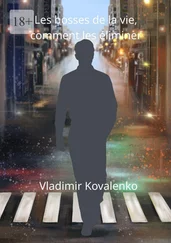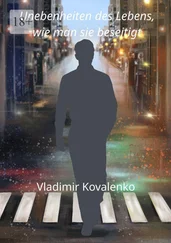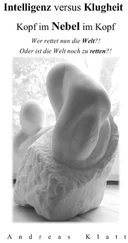The biggest one of them was probably the Münster with its fountain down below that I liked wading through up to my knees. Now we’re going, now we’re going, I sang into my lips … Suddenly there was a huge rumble and through the window steel girders flickered past this way and that, and below them the Rhine appeared with black bands of waves … On it were long, flat barges with closed hatches that carried coal and charcoal for irons … Above the Rhine stood a white building marked NEPTUN right on the water amid train tracks and coal cars, and through the window of the compartment I could also see the Mittlere Brücke with people and struts. The racket was so loud that I could have screamed and kicked doors and nobody would have scolded me for it … I touched the door and, as in some noisy dream, I wanted to say something special, but all I could say was “Wie schnell wir fahren,” *and then I shut up, disappointed … I started to hum Vati’s song, “Ljuba Kovačeva, two beers, we’ve got no cash …” of which all I understood was the surname, which sounded like ours. The infernal clamor died away and was replaced by a soundless silence, as though the train had become a balloon, a zeppelin, a glider slicing through the air with a whoosh as though it were silk … then came small, withered bushes and smaller houses … Basel was strangely disappearing through the windows … a building from the city had just been here, and now instead of it there was already a big hill. This was a speed I could appreciate … I could feel a jaunty tick-tock at the back of my head … I was traveling, traveling through an endless expanse to a country that had lots of horses waiting in stables, and I would unhitch one of them and ride him down to the river so he could drink water … and there would be red boats, so I could row from one riverbank to the other. On the rooftops there would be biplanes ready to take off, and I would fly around in them … over the rooftops and the water … and when they called me to dinner, I would land on the roof and climb down the chimney on a ladder back into the house. I pictured the short, stodgy airplanes that they used for acrobatics at the amusement park, with an open cabin for the pilot … one of them, a red one, would have my name stenciled on it … and I would fly all around in it, over the ponds and white gravel paths of the parks … If I stood by the window, the train went forward faster than if I left it alone … Outside all that was left was greenery, and only here and there some tree would try to finagle its way into the corridor, but of course it couldn’t. My legs became wooden from all the standing, and my eyes … and when the sun started to go down … a huge red tunic … I went back into the compartment.
*
We’re going so fast.
Vati Was Sitting by the Window
VATI WAS SITTING BY THE WINDOW, with nothing to do of course, so he either looked out or dozed. Mother was still completely beside herself … red in the face and neck, she kept fidgeting … but thank God she was no longer complaining or whining. Our luggage, which had formerly been kept in the attic, was stowed on shelves up above: there were several brown and gray canvas bags with rusted corner pieces, a round carrying case made of shiny black leather, two cardboard suitcases and one made out of wicker. Gisela was sleeping with her head on a small comforter and her overcoat for a blanket. Mother offered me a slice of home-baked apricot bread on a napkin … I didn’t feel like it, I was more thirsty. “Iß, sonst wird’s dir schlecht.” *I ate one, two, three slices and then stretched out on the seat next to Vati. I didn’t want to rest my head on his knees, because I knew how he stank of fur down there, but also how uncomfortable my head would be. The gentleman from the corridor with the frigate on his watch sat and talked with both of them for a while. Was he Italian or French?
“Nach dreißig Jahren Leben in der Schweiz haben sie uns hinausgeworfen,” †Vati blurted out … and what other voice came next, but mother’s … here came the tears down her nose, and again I felt ashamed for her. Oh, I knew all of her reproaches by heart, even if I didn’t understand all of them … Vati turned attentively toward the dandified man.
“Das macht der Krinneg,” ‡the visitor answered thoughtfully. “Wenn es nicht die Gefahr von Krieg gäbe, wäre die Auslassung aus der Schweiz niemals passiert.” §
“Ach, wenn wir doch damals, in den zwanziger Jahren die schweizerische Staatsbürgerschaft angenommen hätten. Aber mein Mann wollte seine Länder zurück … Bis wohin fahren Sie mit uns?” ‖
“Bis zu der Grenze,” athe gentleman said. He was the one who had locked the compartment door and had a key to the whole train car in his pocket.
They woke me up in the night with the electric light bathing the compartment in yellow. “Schnell, schnell, wach auf,” Vati said as I sank back into a pleated sort of sleep. He took hold of me and set me on my feet. I raised my arms over my head and fell to the floor. Gisela was already wrapped in a blanket and sleeping on mother’s shoulder. The gentleman was standing outside the train car. They hurriedly dressed me in my sailor’s coat with the anchor. Outside nothing was visible through the watery darkness except for some lights. I jumped from the high door out into the drizzly rain. We ran from the train that had brought us across tracks and ties that looked like ladders scattered over the gravel ballast. Mother ran with Gisela across a track toward a long, dimly lit roof. Vati was hurrying with me, pressing one of my hands to the handles of two suitcases he was carrying, because in the other he was carrying two more, while I had the round one in my other hand. Mother was shouting back at us, worried crazy as usual … In the light of the locomotive the rain turned into Christmas tree tinsel. The roof turned out to be a station with posters and numbers, but no people. Mother sat on a black iron bench holding Gisela in her arms, who was awake now and had the eyes of an ermine … Vati, accompanied by a gentleman disappeared into some black hole, because he had to take care of something with our green travel booklets. I was freezing. It was strange, that same day I’d been knocking around Basel. When I got to Barfüßerplatz across from Gerbergässli, Gritli had called to me from the other side. At first I thought she was trying to trick me, as she had often done to get me to go home. But this time she was shouting in such an urgent voice and with such an earnest face, even after a streetcar came between us, that I finally ran across the street on my own … She didn’t slap me, she didn’t touch me at all. Outside our building there was a policeman in a short cape. On the other side of the door there was chaos and running around, and suitcases were lined up one after the other on the steps, as though they’d walked out of the room on their own … “Schnell, schnell,” mother shouted from upstairs. “Wasche dich, wir fahren nach Jugoslawien.” b … Had I heard right? Was that even possible?… They literally ripped the clothes off of me, causing the buttons to fly, tossed me into the bathtub, soaped me up and scrubbed me so hard I had scratches, dried me with a towel, and dressed me in white … in a shirt with buttons that I tucked into my shorts. All the rooms — the workshop, the showroom, the salesroom — were full of strange gentlemen, plainclothes policemen, some of whom looked like businessmen and others like dancers, walking back and forth holding papers, writing things down, counting on their fingers and pushing us the whole time, “Schnell! Schnell!” We walked to the train station with our luggage, accompanied by two uniformed policemen and two in plain clothes. It was so hot that we all had dark spots on our clothes from sweating … At the station a nurse with a red cross on her cap met us. She wanted to take Gisela and me to the dispensary for coffee with milk, because we hadn’t had lunch. “Nein, das erlaube ich nicht,” csaid mother. Lots of people crowded around … Mother held me by the hand and refused to let me go … but the nurse pleaded with her and gently took hold of me by the shoulder. Finally, with Gisela in her arms, mother went with me into a sooty office where the huge black plate of a locomotive loomed right outside the window. The nurse pushed a cup of gray-white coffee across the table … Mother picked it up with her left hand and tried it. “Ein schlechter, lauer Kaffee,” dshe said. The nurse gave me a friendly nod. I knew that when adults were this nice it wasn’t right for children to turn down whatever they offered or else they could suddenly get angry. There was a gray membrane floating on top of the coffee. I took a swallow and a revolting, cold slime slid down my throat … I couldn’t get it down or out … I spat it back out into the coffee. I set the cup down and climbed out of the chair, regretting that I couldn’t oblige myself for the sake of the nurse. Vati arrived with the papers and black booklets that had little windows in them for our names. Finally we boarded the train, where I spent the whole time standing by a window. Mother of course was crying and complaining, which made me draw in my head and wish I could hide. The policemen and two gentlemen showed us the compartment we would be traveling in. They stood at the doors at both ends of the car, and there was a policeman in the corridor too … until the conductor came and locked the compartment. The train stood fairly far out from the main building and it wasn’t until it began to move that Clairi and Gritli appeared on the platform, both of them dressed like mother in white dresses and broad white hats. “Warum fahren sie nicht mit uns?” eI asked mother. “Clairi kommt später, das Gritli bleibt und wird alles machen bei den Behörden, daß wir zurückkommen.” fSo we can come back? No, I don’t think so … Mother wept and kept casting looks at father as though he were some sort of lizard or crocodile. My sisters waved to us from next to a pillar. Clairi, Gisela’s mother, I liked better because she was always sad, but I looked at Margrit, who was mean, because she had begun to interest me more and more … As I was standing next to a pillar now, everything that had happened seemed as colorful and abrupt as in some comic strip … Despite the scrubbing, my fingernails were still black from the dirt and sand I’d been playing in by the water under the cliff … Vati came running alone out of the black hole and shouted, “Da ist der richtige Zug!” gas he pointed toward the headlights of a locomotive that was puffing in the rain, “woo-woo-woo” …
Читать дальше












